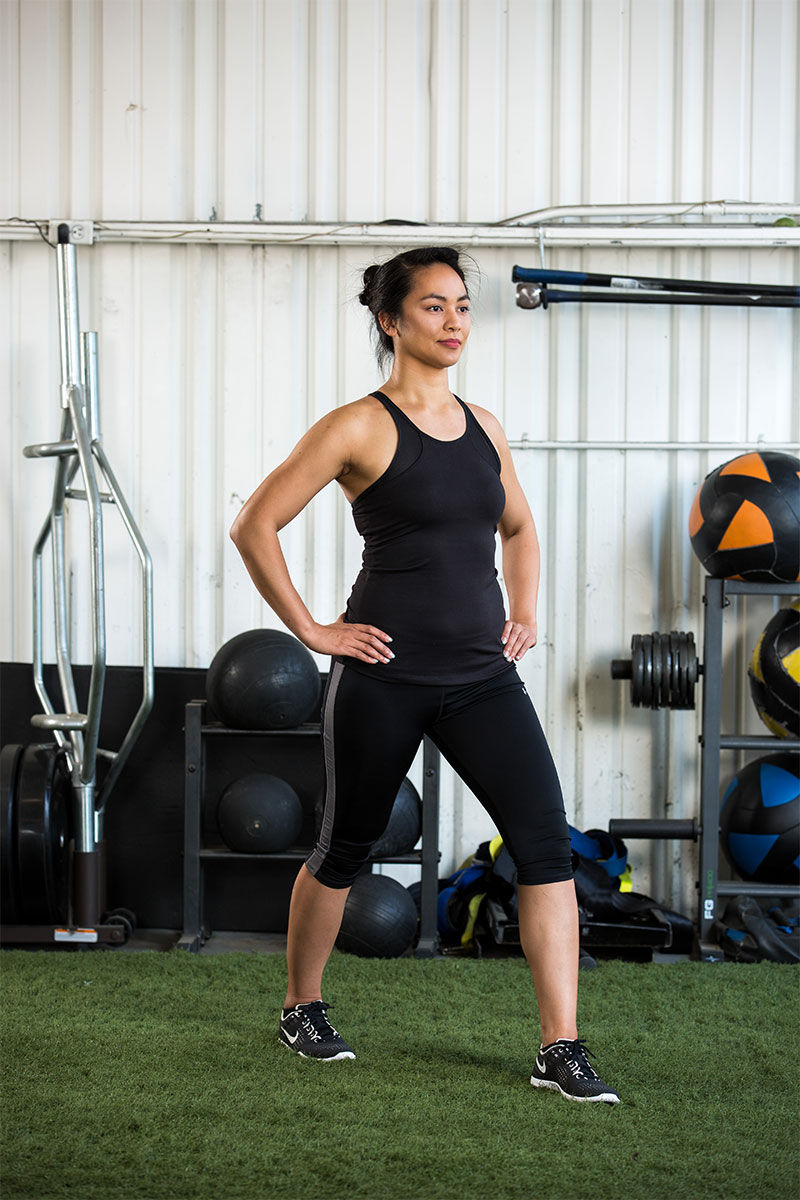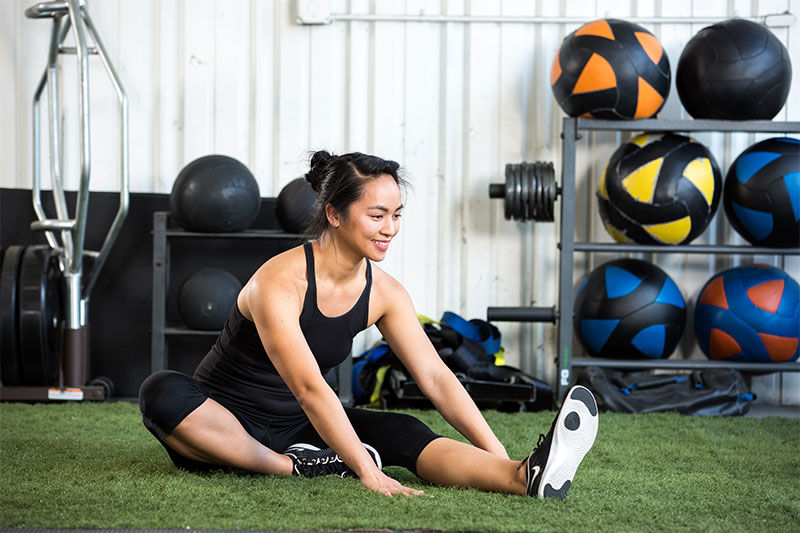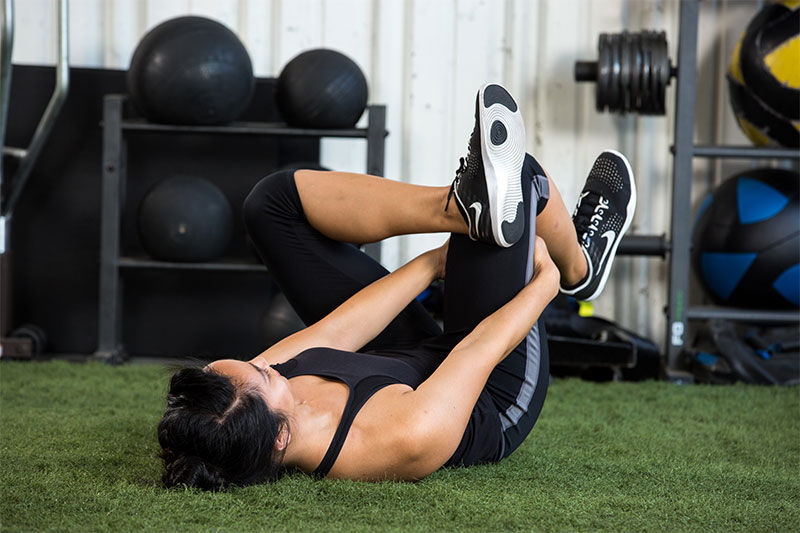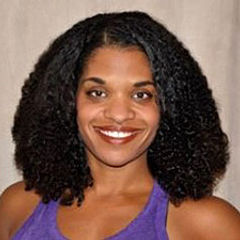Flexibility is an important component of health-related fitness, but flexibility training is often neglected, even among regular exercisers. Flexibility describes the ability of a joint and surrounding muscles to move through a specific range of motion with ease and without pain. Lifting weights promotes lean muscle mass, and aerobic exercise such as running improves the function of the heart and lungs, but what can flexibility training do for you? Here are a few of the benefits:
- Improved efficiency in completing activities of daily living such as bending, reaching, squatting and stepping over things
- Better posture
- Reduced risk of injury (especially those related to sport and physical activity)
In addition to these physical benefits, flexibility training can improve mood by releasing muscle tension and facilitating relaxation. For best results, do some form of flexibility training at least two to three days per week. However, if stretching is not currently part of your fitness program, you can enjoy the benefits of this type of training by incorporating just a few flexibility exercises for beginners at the end of your workout session. Here are three to get you started, and all you will need is a yoga or exercise mat:
Standing Hip Flexor Stretch

This stretch focuses on the psoas muscle, which can become tight from extended sitting and repetitive aerobic exercise activities such as running.
- Take a split stance by bringing the left foot forward and the right foot back.
- Drop the back knee and tailbone an inch closer to the floor while slightly tucking the pelvis forward.
- Keep the spine neutral. Avoid arching or rounding the back.
- Hold, and then repeat on the other side.
Seated Head-toward-knee Stretch

This stretch focuses on the hamstrings (back of the thigh) and relieves tension in the back.
- Sit with the right leg stretched out in front of you and the left leg bent, relaxed and pointing away from the body.
- Lengthen the spine and slightly rotate the torso toward the stretched leg.
- Gently fold forward.
- Hold, and then repeat on the other side.
Reclining Figure 4 Stretch

This stretch focuses on the outer hip and gluteal muscles, and relieves tension in the lower back.
- Begin by lying on your back with both knees bent and feet flat on the floor.
- Cross the right foot over the left thigh and bring your legs toward the torso.
- Avoid straining. Instead, allow gravity to bring the legs closer to the body to deepen the stretch.
- Hold, and then repeat on the other side.
Keep in mind that flexibility is joint- and muscle-specific and varies from person to person. People who are very flexible in their hamstrings may find that they lack the same level of flexibility in their shoulders. Fitness level, genetics, age, gender and individual anatomy all impact a person’s flexibility. Still, flexibility will improve with consistent training.
Follow these tips to get the most out of your flexibility training:
- Avoid holding your breath. Focus on maintaining a smooth and steady breathing pattern while you stretch.
- “No pain, no gain” is simply not true. Stretching shouldn’t hurt. Stretch to the point of mild discomfort. Try to find a balance of ease and effort in every stretch.
- Avoid bouncing or jerking movements. Static stretching (holding the stretch) is an efficient means for improving flexibility, and the risk of overstretching or injuring the muscle is relatively low with this stretching technique.
- Take your time. Try holding the stretch for 10-30 seconds, releasing and then repeating the stretch before moving on to the next exercise.
- Muscles stretch more easily when they are warm. If you are unable to stretch at the end of a workout session, try performing the stretches after a hot bath or shower.




 by
by 





 by
by